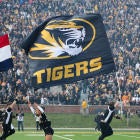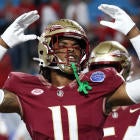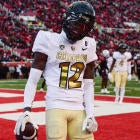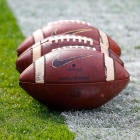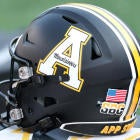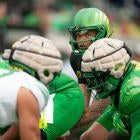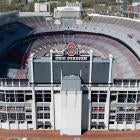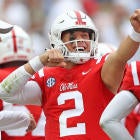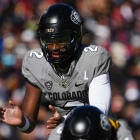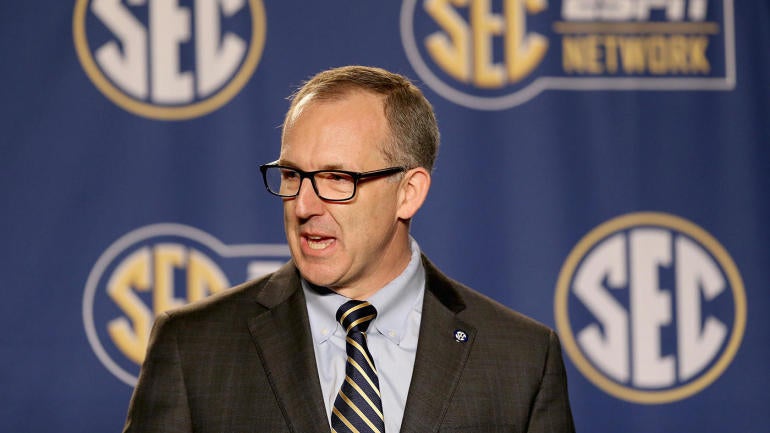
Conference commissioners Greg Sankey of the SEC and George Kliavkoff of the Pac-12 met with United States senators Thursday on Capitol Hill in hopes of convincing lawmakers to work on federal legislation governing name, image and likeness rights for college athletes. Sankey and Kliavkoff had meetings with at least two senators, Marsha Blackburn (R-Tenn.) and Maria Cantwell (D-Wash.), as they seek a federal solution on NIL as well as assistance in addressing employment status for college athletes, Sports Illustrated first reported Wednesday night.
"For far too long, the NCAA has refused to allow student-athletes to benef from the use of their name, image and likeness (NIL)," said Blackburn in a statement. "NCAA president Mark Emmert's resignation is one of many necessary structural changes that will enable the NCAA to support our student-athletes. During my meeting with SEC commissioner Greg Sankey and others today, I continued to push for the accountability and fairness measures our student-athletes deserve."
Last summer, college athletes were allowed to begin profiting off NIL, and the impact has already been felt far and wide. Reports of $8 million deals for high school recruits, booster collectives not exactly circumventing "pay-for-play" rules and utilization of the transfer portal for financial leverage have become more commonplace, turning college athletics into the Wild West.
As a result, some of college athletics' most influential decision-makers have had enough.
"I have been invited to meetings with several senators tomorrow to discuss the issues we're seeing with name, image and likeness, and with the existential threat of our student-athletes being deemed to be employees," Kliavkoff told ESPN. "Either the NCAA is going to get its act together in enforcing this or I'm going to be pushing for a smaller group to figure out how to create and enforce the NIL rules that we all agree on related to inducement and pay-for-play. The amount of an NIL payment should be commensurate with the work done as a backstop to make sure we're not using it related to inducement and pay-for-play."
It's yet another plea to the federal government from an industry that has dramatically changed over the last decade-plus. NIL deals were not intended to be used in the high school or transfer portal recruiting process, but that hasn't stopped booster collectives and other businesses from essentially creating a pay-for-play process, oftentimes with six- and seven-figure deals.
"I think NIL would have been infinitely better off if we have implemented the dozen or so guardrails that we had in place," exiting Big 12 commissioner Bob Bowlsby told CBS Sports' Dennis Dodd this week. "There was some clear language about inducements for initial enrollment and transfers, which obviously are being widely flaunted at this point."
Emmert and other administrators have been urging federal lawmakers to get involved in the business side of college athletics as players begin profiting off of their popularity. States, however, began to pass their own laws governing NIL over the past year, which forced the NCAA to create legislation that governs the practice in states that currently don't have their own laws on the books.













